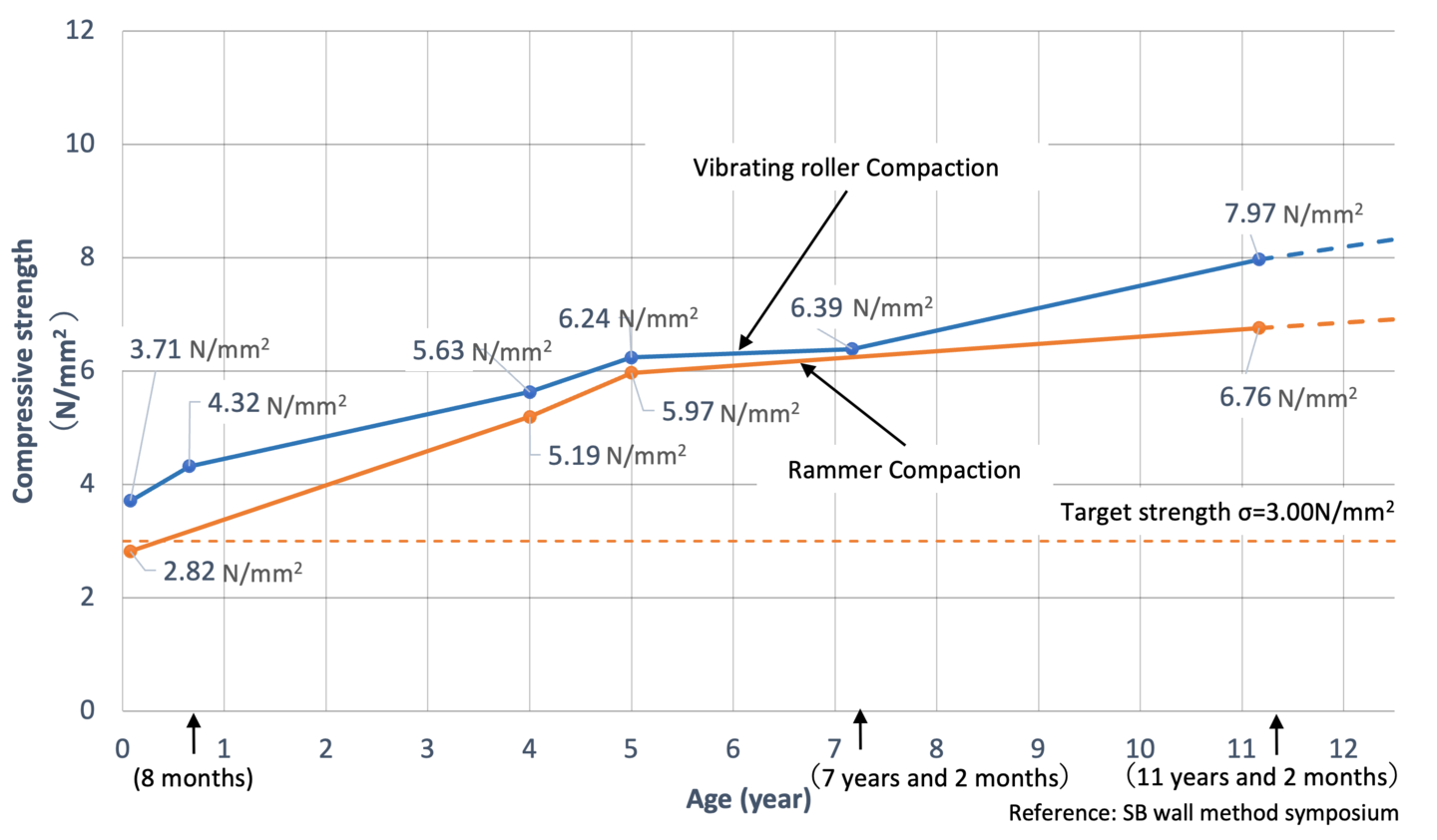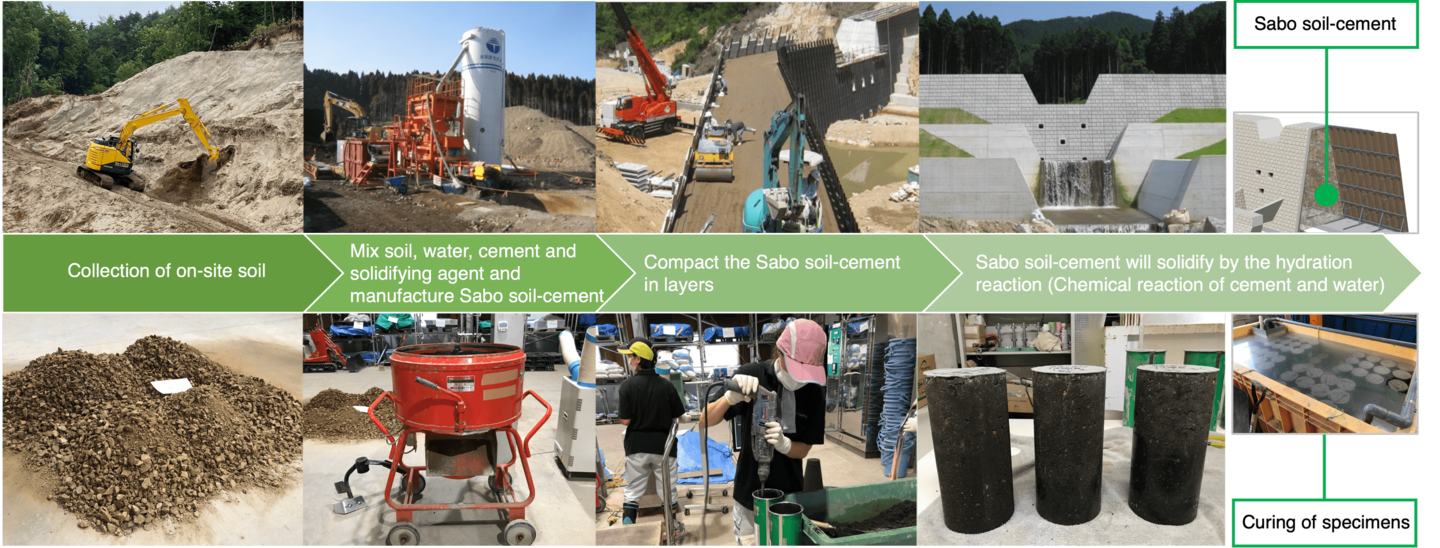WHAT IS SABO SOIL-CEMENT?
Sabo soil-cement was developed to utilize on-site soil effectively in the promotion of sediment disaster prevention projects. It is a material produced by mixing and blending on-site soil with cement/ solidifying agents, and water at the construction site. Its distinctive feature lies not in the goal of increasing density but in a formulation that activates the hydration reaction of cement (soil, cement/solidifying agents, water). As a result, it achieves compressive strengths exceeding 2,000 kN/m².
WHY DOES IS SOLIDIFY?
The solidification of Sabo soil-cement occurs because of the reaction of the components constituting cement with water, producing various hydration compounds. This is referred to as the 'hydration reaction.' As illustrated in Figure 1, the strength of Sabo soil-cement has been confirmed to increase over several decades.
ADVANTAGES AND DISADVANTAGES OF SABO SOIL-CEMENT
Advantages
1:Reduction of excavated sediments
Using the on-site sediments reduces the need for disposal sites for excavated sediments.
2:Contribution to reductin of environment impact
By significantly reducing the number of transportation vehicles, such as concrete mixer trucks, it is possible to reduce CO2 emissions and minimize noise, vibration, and dust, contributing to a reduction in environmental load. Additionally, this approach enhances safety for nearby residents, tourists, and hikers.
3:Adaptability to various construction conditions
It can adapt to various construction conditions as the local soil is mixed on-site to create construction materials. This eliminates the need for concrete import, making it suitable for sites where procuring concrete is challenging, planning access roads for construction is difficult, or disposing surplus soil is problematic.
4:Reduction in construction period
Because it eliminates the curing period required in concrete construction, Sabo soil-cement method allows for continuous construction. This enables a reduction in the construction period compared to concrete construction.
5:Reduction in cost
Utilizing on-site soil as a construction material leads to a significant cost reduction.



